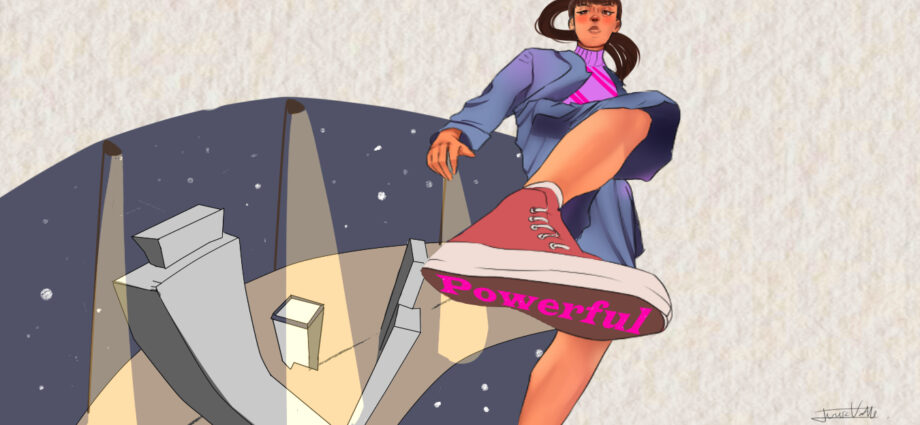Written by Luma Andrade
In my own personal experience, just being a woman in the world is a relentlessly exhausting endeavor. This is not one of those upbeat pieces that tries to provide a rosy picture of our world and pretend that we are the evolved civilization that we often pretend to be. In this piece, I want to express how exhausted I feel, and how many other women feel, from having to deal with the never-ending effects of structural and societal oppression on a daily basis.
I can’t even count the number of times I’ve been sexually harassed, and after relaying the story, many people tell me: “Oh my gosh, you are just so powerful and resilient.”After being a woman in this world for twenty years, I’m sick of having to be strong at all times. It doesn’t matter if it’s a 5-minute stroll to the grocery or a 20-minute bike ride to the university; there’s always a potential risk of being harassed. Obviously, men are more often the source of these kinds of comments. This is to be expected, given the radical and striking dissimilarity between their reality and ours.
The common sense of being seen as powerful when you merely emerge alive from a traumatic circumstance and carry on with your life (or at least try) till the next harassment occurs is dangerously wrong. The number of times I can leave my house without having to think of hundreds of methods to escape potentially life-threatening circumstances is nearly non-existent. Where is the power in that? How can one feel strong when they are always in a state of fear? The idea of having control over my own life is merely a societal illusion brought on by the fact that things aren’t as awful as they used to be, we sometimes pretend to be a way more evolved civilization. I will present some examples of why that’s the case, but be warned: the next lines of examples will strike you like a freezing bucket on top of your head.
Marital rape was legal until 1991 in the Netherlands, 1992 in the United Kingdom, 2006 in France, and the list goes on. United Nations statistics from 2021 reveal that 22 percent of nations have no legislation criminalizing marital rape. Another example of the striking reality of lack of bodily autonomy, in 24 countries, abortion is still prohibited altogether, despite the fact that over 23,000 women die each year from unsafe abortions and that thousands of women who survive such abortions subsequently develop serious health consequences.
But what actually is bodily autonomy? Bodily autonomy refers to the right of women to make decisions independently. It involves agency; deciding what occurs and does not occur with your body. We cannot even control our own bodies. And I use the pronoun “we” because I do not think any of us are truly free until we are all free. It should be an intersectional collective fight. As stated by the African-American feminist author Audre Lorde in her essay in 1979:
“As women, we have been taught either to ignore our differences, or to view them as causes for separation and suspicion rather than as forces for change. Without community, there is no liberation, only the most vulnerable and temporary armistice between an individual and her oppression. But community must not mean a shedding of our differences, nor the pathetic pretense that these differences do not exist.”
But what does she mean? In simpler terms, a collective liberation is needed, and we, as women, have to examine our many differences within our community and see the strength in our differences. She further argues in her great essay that interdependency between women is a way to freedom, and that the ability to produce new ways of being in the world depends on the acknowledged and equal interdependence of different strengths.
The issue with achieving a collective liberation and said interdependence, is that we live in a not-so-free world where women have limited bodily autonomy. It would be powerful if we lived in a society where we had bodily autonomy and could go outside without fear for our lives. It would be powerful if we were the ones controlling our own bodies.
All of this is not to say that we are not powerful for dealing with harassment. I know first-hand that dealing with life after traumatic events requires a great deal of strength, but one’s existence should not be dependent on whether or not they are strong enough to move on from one harassment to the next. I take great pride in my resilience and ability to cope with incidents in whatever way is feasible at the time. However, I cannot sustain a lifestyle that requires me to be resilient at all times, nor one in which I am expected to normalize situations that leave me completely disturbed, in danger, and with my personal space violated.
I am tired of the constant feeling of unsafety hanging around my reality.
Edited by Margaux Marzuoli, artwork by Teresa Valle

